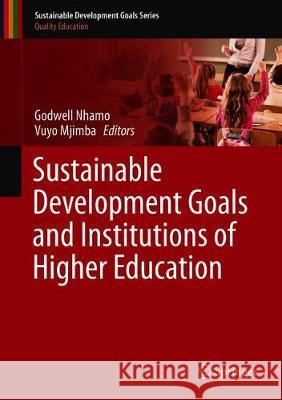topmenu
Wyniki wyszukiwania:
wyszukanych pozycji: 2
 |
Sustainable Development Goals and Institutions of Higher Education
ISBN: 9783030261566 / Angielski / Twarda / 2019 / 212 str. Termin realizacji zamówienia: ok. 16-18 dni roboczych. |
cena:
563,56 |
 |
New African Thinkers: Considering Peace and Development in Africa
ISBN: 9780798305402 / Angielski / Miękka / 2025 / 225 str. Termin realizacji zamówienia: ok. 22 dni roboczych. Emerging and midcareer scholars from across Africa explore the complexities of peace and development on the continent, providing insights and actionable strategies for lasting stability and prosperity._x000D_
_x000D_ CONTENTS: CONFLICT RESOLUTION, PEACEBUILDING, AND GOOD GOVERNANCE.The Dimensions of Peacebuilding and Development in Africa—C. Achu, R. Managa, V. Mjimba.The Resurgence of Coups d'Etat in West Africa and the Sahel—C.O. Mongale and K. Tsholo.Measuring Nigerians' Willingness to Talk to Police on Duty—O. Ayomipo et al.Good Governance Remains Key to Africa's Sustainable... Emerging and midcareer scholars from across Africa explore the complexities of peace and development on the continent, providing insights and actionab...
|
cena:
146,09 |










